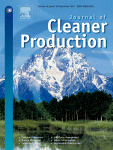Research
ISO 14001 in environmental supply chain practices
This paper focuses on the role of ISO 14001 in environmental supply management practices in Swedish companies. It discusses the existing and potential role of ISO 14001 for three key operational tasks of environmental supply chain management: to communicate the requirements to the supplier, to motivate and enable the supplier, and to verify that the supplier follows the requirements. The study used three different research methods: interviews with environmental managers, focus group discussions and a survey of two multinational companies and their operating units in several countries.
It concludes that cooperation between the purchasing and environmental functions within a company is frequently not sufficiently achieved in implementation of ISO 14001; this makes the communication of customer requirements to suppliers less efficient. Building close relationships with suppliers is important to overcome initial difficulties, but this often conflicts with having a large supplier base. For the supplier to have an ISO 14001 certificate is seldom an absolute requirement, however, preference is often given to such suppliers. The value of the ISO 14001 certificate, as a proof of environmental performance, is a combination of the supplier’s environmental ambitions, the advancement of supply chain practices of the customer and the ambitions of the certification bodies. Supplier audits are not commonly used as they are resource-consuming. Monitoring and verification approaches need further development.
Authors
Dagmara Nawrocka, Torbjörn Brorson, Thomas Lindhqvist – International Institute for Industrial Environmental Economics at Lund University, Lund, Sweden
Citation
‘ISO 14001 in environmental supply chain practices‘, Dagmara Nawrocka, Torbjörn Brorson, Thomas Lindhqvist, Journal of Cleaner Production, Volume 17, Issue 16, November 2009, Pages 1435–1443

